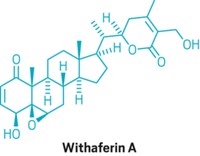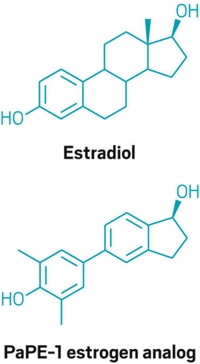Advertisement
Grab your lab coat. Let's get started
Welcome!
Welcome!
Create an account below to get 6 C&EN articles per month, receive newsletters and more - all free.
It seems this is your first time logging in online. Please enter the following information to continue.
As an ACS member you automatically get access to this site. All we need is few more details to create your reading experience.
Not you? Sign in with a different account.
Not you? Sign in with a different account.
ERROR 1
ERROR 1
ERROR 2
ERROR 2
ERROR 2
ERROR 2
ERROR 2
Password and Confirm password must match.
If you have an ACS member number, please enter it here so we can link this account to your membership. (optional)
ERROR 2
ACS values your privacy. By submitting your information, you are gaining access to C&EN and subscribing to our weekly newsletter. We use the information you provide to make your reading experience better, and we will never sell your data to third party members.
Biological Chemistry
Study Firms Up BPA-Diabetes Link
Tests on mouse and human cells find that the estrogen mimic stimulates an increase in insulin production
by Stephen K. Ritter
February 13, 2012
| A version of this story appeared in
Volume 90, Issue 7
A lab study designed to examine the relationship between bisphenol A (BPA) and insulin regulation leading to diabetes has found that the controversial chemical increases insulin release, more so in human cells than in mouse cells (PLoS One, DOI: 10.1371/journal.pone.0031109). BPA is a synthetic chemical building block used to make an array of consumer products, especially polycarbonate plastics for food packaging. It has been found at low levels in the blood and urine of most people and is linked to several diseases. Scientists have struggled to understand how BPA affects physiological processes and to determine with certainty whether BPA should be considered a health hazard. Angel Nadal of Spain’s Miguel Hernández University of Elche and coworkers found that nanomolar amounts of BPA, on the order of that found in people, interferes with estrogen receptors to decrease the activity of potassium ion channels, increase glucose-induced calcium signaling, and trigger increased insulin release from pancreatic β-cells—conditions that lead to diabetes. Nadal’s team says its findings show that BPA acts as a strong estrogen similar to the natural hormone estradiol and support the idea that BPA should be considered a risk factor for metabolic disorders in humans.




Join the conversation
Contact the reporter
Submit a Letter to the Editor for publication
Engage with us on Twitter